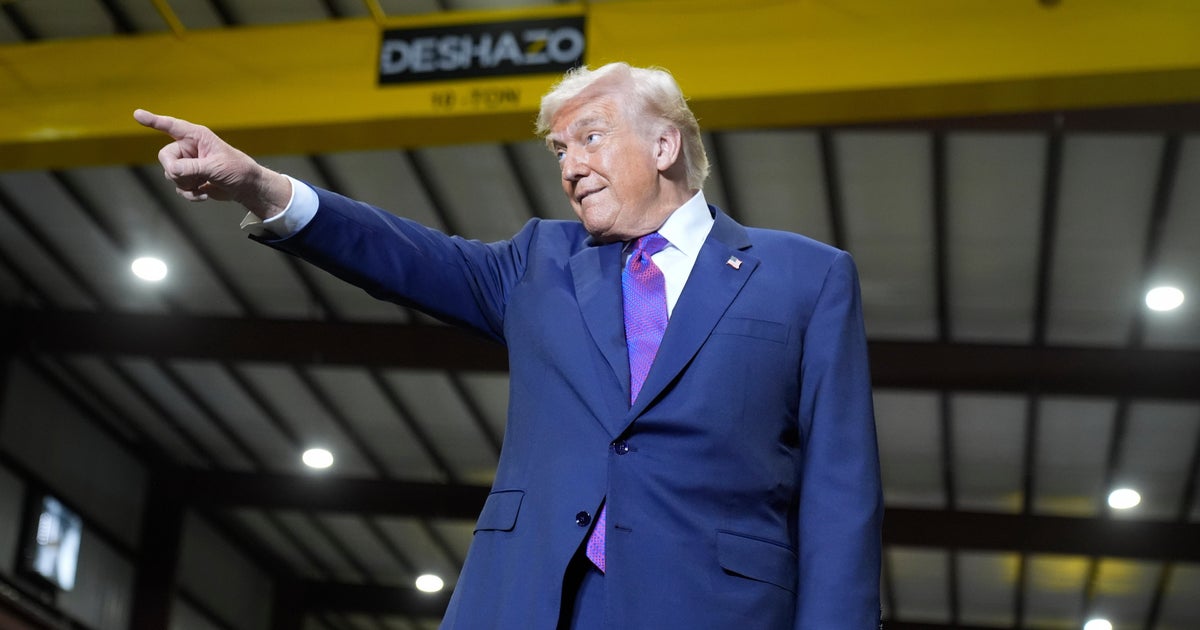Most older Americans favor age limits for elected officials
The majority of Americans across different demographics say they believe age limits should be enforced for elected officials, according to a poll conducted by CBS News. The consensus comes as many current politicians break records for being the oldest to occupy their current roles.
"I don't think I have the sharpness and the crispness and the mentality that I had even 10 years ago," Chris Maltbie told "CBS Mornings" co-host Tony Dokoupil at the country's largest senior citizen community.
And Maltbie wasn't alone. Nearly every person asked by Dokoupil at "The Villages" retirement community in Florida agreed, pointing concern at the aging demographic of the country's politicians.
"There is an age, I think, when a person doesn't have the capabilities of conducting the kind of things you have in office," David Hayworth told Dokoupil at "The Villages." Seated beside him, Lynn Hayworth said she feels "the same way."
"I think somebody 80 doesn't belong as a leader," Bill Thornton added, who is almost 80 years old himself.
When inaugurated in 2021, Joe Biden became the oldest president to occupy the White House at age 78. With his upcoming birthday in November, he's on track to become the first U.S. president ever to turn 80 years old while in office.
Former President Donald Trump would match that record should he vie for candidacy and win another presidential term. Both Trump and Biden have faced criticism for showing what some have claimed were public signs of mental decline.
The U.S. Senate is also the oldest in history with an average age of nearly 65 and in the House of Representatives, Speaker Nancy Pelosi is the oldest speaker ever at age 82.
Using a national sample of 2,085 U.S. adults in a CBS News poll, 71% of Americans voted in favor of maximum age limits for elected officials, with greater support coming from senior citizens rather than younger adults. When offered a list of ages, 70 was the highest age chosen.
"The question of senility is sort of an obvious question," Tal Kopan, deputy D.C. bureau chief for the Boston Globe, told Dokoupil.
In April this year, Kopan published a story at the San Francisco Chronicle about the nation's oldest senator, Dianne Feinstein, 89, and citing sources concerned about what they described as the politician's "rapidly deteriorating" memory. Four U.S. senators, she reported, said they believe Feinstein may be "mentally unfit to serve."
"The dynamic that was being described of a senator who was unable to recall conversations that had just happened that raises a real question as to whether, you know, the principal is actually running the office anymore," Kopan said.
In a statement to the publication, Feinstein admitted that she did not recognize a fellow Congress member but cited the "hard time" she's facing as she adjusts to her husband's recent death.
Dr. Mark Lachs, chief of gerontology at Weill Cornell Medicine, said it's normal for brains to shrink as humans age, and that older minds generally are likely to struggle with memory.
"We don't expect an 80-year-old to remember like a 40-year-old," he said.
But Lachs noted that many 80-year-olds are also as sharp as ever at their age, which is why he said political age limits would be both "arbitrary" and "wrong."
"You know, aging, Tony, brings something that youth doesn't," he told Dokoupil. "It's judgment and experience. You mentor younger people. I mean, if there were no older people in the legislature, who's going to bring these young people up?"
Kopan said the answer to the question of how old is too old for office remains in the hands of voters.
"At the end of the day, the collective power of the American electorate is the only way to effectuate change in our government, by flaw or by design, that is what it is," she said.



